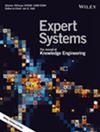使用关键指标和新兴工具对大型语言模型进行比较评估
IF 3
4区 计算机科学
Q2 COMPUTER SCIENCE, ARTIFICIAL INTELLIGENCE
引用次数: 0
摘要
这项研究涉及设计和构建一个交互式生成人工智能应用程序,利用兰史密斯评估工具对两种先进的大型语言模型(LLM)--GPT-4 和 Claude 2 进行比较分析。开发该项目的目的是在明斯特理工大学(MTU)的模拟环境中探索 LLM 在促进研究生课程推荐方面的潜力。该应用程序专为比较分析而设计,可对 GPT-4 和 Claude 2 进行测试,并可灵活地托管在亚马逊网络服务(AWS)或 Azure 上。它利用先进的自然语言处理和检索增强生成(RAG)技术来处理专有数据,以满足研究生的需求。本研究的一个关键组成部分是使用兰斯史密斯评估工具,根据定制和标准基准对 LLM 进行严格评估。评估的重点是偏差、安全性、准确性、成本、稳健性和延迟等指标。此外,还对语言翻译和互联网接入等关键功能的适应性进行了独立研究,因为兰斯史密斯工具并不对这一指标进行评估。这确保了对 LLM 能力的全面评估。本文章由计算机程序翻译,如有差异,请以英文原文为准。
Comparative evaluation of Large Language Models using key metrics and emerging tools
This research involved designing and building an interactive generative AI application to conduct a comparative analysis of two advanced Large Language Models (LLMs), GPT‐4, and Claude 2, using Langsmith evaluation tools. The project was developed to explore the potential of LLMs in facilitating postgraduate course recommendations within a simulated environment at Munster Technological University (MTU). Designed for comparative analysis, the application enables testing of GPT‐4 and Claude 2 and can be hosted flexibly on either Amazon Web Services (AWS) or Azure. It utilizes advanced natural language processing and retrieval‐augmented generation (RAG) techniques to process proprietary data tailored to postgraduate needs. A key component of this research was the rigorous assessment of the LLMs using the Langsmith evaluation tool against both customized and standard benchmarks. The evaluation focused on metrics such as bias, safety, accuracy, cost, robustness, and latency. Additionally, adaptability covering critical features like language translation and internet access, was independently researched since the Langsmith tool does not evaluate this metric. This ensures a holistic assessment of the LLM's capabilities.
求助全文
通过发布文献求助,成功后即可免费获取论文全文。
去求助
来源期刊

Expert Systems
工程技术-计算机:理论方法
CiteScore
7.40
自引率
6.10%
发文量
266
审稿时长
24 months
期刊介绍:
Expert Systems: The Journal of Knowledge Engineering publishes papers dealing with all aspects of knowledge engineering, including individual methods and techniques in knowledge acquisition and representation, and their application in the construction of systems – including expert systems – based thereon. Detailed scientific evaluation is an essential part of any paper.
As well as traditional application areas, such as Software and Requirements Engineering, Human-Computer Interaction, and Artificial Intelligence, we are aiming at the new and growing markets for these technologies, such as Business, Economy, Market Research, and Medical and Health Care. The shift towards this new focus will be marked by a series of special issues covering hot and emergent topics.
 求助内容:
求助内容: 应助结果提醒方式:
应助结果提醒方式:


